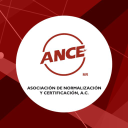EN 50216-10:2009
(Main)Power transformer and reactor fittings - Part 10: Oil-to-air heat exchangers
Power transformer and reactor fittings - Part 10: Oil-to-air heat exchangers
EN 50216-10 describes oil-to-air heat exchangers that means a heat exchanger for the cooling of the transformer oil using a forced oil circuit and a forced air circuit. The oil-to-air heat exchangers are not included in the scope of the Pressure Equipment Directive 97/23/EC according to Article 1, § 3.12. This standard establishes essential dimensions and the requirements to ensure interchangeability and adequate mounting of the oil-to-air heat exchangers. This standard applies for dimensions and requirements of oil-to-air heat exchangers. The increase of ratings and constructional changes as well are considered in the revised standard.
Zubehör für Transformatoren und Drosselspulen - Teil 10: Öl-Luft-Kühler
EN 50216-10 behandelt Öl-Luft-Kühler, d. h. Wärmetauscher für die Ölkühlung von Transformatoren mittels erzwungenem Ölumlauf und mittels erzwungener Luftkühlung. Die Öl-Luft-Kühler fallen nicht in den Anwendungsbereich der Druckgeräterichtlinie RL 97/23/EG nach Artikel 1, § 3.12. Diese Norm legt grundlegende Abmessungen und Anforderungen fest, um Austauschbarkeit und einheitliche Montage der Öl-Luft-Kühler sicherzustellen.
Accessoires pour transformateurs de puissance et bobines d'inductance - Partie 10: Echangeurs thermiques huile-air
La EN 50216-10 traite des échangeurs thermiques huile-air, ce qui signifie un échangeur thermique pour le refroidissement de l'huile de transformateur en utilisant un circuit à huile forcée et un circuit à air forcé. Les échangeurs thermiques huile-air ne sont pas inclus dans le domaine d’application de la Directive 97/23/CE relative aux Equipements sous pression, selon l'Article 1, § 3.12. La présente norme établit les dimensions essentielles et les exigences pour assurer l'interchangeabilité et le bon montage des échangeurs thermiques huile-air.
Pribor za energijske transformatorje in dušilke - 10. del: Toplotni izmenjevalnik olje-zrak
General Information
- Status
- Withdrawn
- Publication Date
- 05-Mar-2009
- Withdrawal Date
- 31-Oct-2011
- Technical Committee
- CLC/TC 14 - Power transformers
- Drafting Committee
- IEC/TC 14 - IEC_TC_14
- Parallel Committee
- IEC/TC 14 - IEC_TC_14
- Current Stage
- 9960 - Withdrawal effective - Withdrawal
- Start Date
- 12-Apr-2022
- Completion Date
- 12-Apr-2022
Relations
- Effective Date
- 16-Mar-2021
- Effective Date
- 10-Feb-2026
- Effective Date
- 03-Feb-2026
- Effective Date
- 03-Feb-2026
- Effective Date
- 03-Feb-2026
Get Certified
Connect with accredited certification bodies for this standard

Intertek Testing Services NA Inc.
Intertek certification services in North America.

UL Solutions
Global safety science company with testing, inspection and certification.

ANCE
Mexican certification and testing association.
Sponsored listings
Frequently Asked Questions
EN 50216-10:2009 is a standard published by CLC. Its full title is "Power transformer and reactor fittings - Part 10: Oil-to-air heat exchangers". This standard covers: EN 50216-10 describes oil-to-air heat exchangers that means a heat exchanger for the cooling of the transformer oil using a forced oil circuit and a forced air circuit. The oil-to-air heat exchangers are not included in the scope of the Pressure Equipment Directive 97/23/EC according to Article 1, § 3.12. This standard establishes essential dimensions and the requirements to ensure interchangeability and adequate mounting of the oil-to-air heat exchangers. This standard applies for dimensions and requirements of oil-to-air heat exchangers. The increase of ratings and constructional changes as well are considered in the revised standard.
EN 50216-10 describes oil-to-air heat exchangers that means a heat exchanger for the cooling of the transformer oil using a forced oil circuit and a forced air circuit. The oil-to-air heat exchangers are not included in the scope of the Pressure Equipment Directive 97/23/EC according to Article 1, § 3.12. This standard establishes essential dimensions and the requirements to ensure interchangeability and adequate mounting of the oil-to-air heat exchangers. This standard applies for dimensions and requirements of oil-to-air heat exchangers. The increase of ratings and constructional changes as well are considered in the revised standard.
EN 50216-10:2009 is classified under the following ICS (International Classification for Standards) categories: 29.180 - Transformers. Reactors. The ICS classification helps identify the subject area and facilitates finding related standards.
EN 50216-10:2009 has the following relationships with other standards: It is inter standard links to EN IEC 60076-22-3:2019, ISO 4406:1999, EN IEC 60721-3-4:2019, EN IEC 60296:2020, EN 50216-1:2002. Understanding these relationships helps ensure you are using the most current and applicable version of the standard.
EN 50216-10:2009 is available in PDF format for immediate download after purchase. The document can be added to your cart and obtained through the secure checkout process. Digital delivery ensures instant access to the complete standard document.
Standards Content (Sample)
SLOVENSKI STANDARD
01-maj-2009
Pribor za energijske transformatorje in dušilke - 10. del: Toplotni izmenjevalnik olje
-zrak
Power transformer and reactor fittings - Part 10: Oil-to-air heat exchangers
Zubehör für Transformatoren und Drosselspulen - Teil 10: Öl-Luft-Kühler
Accessoires pour transformateurs de puissance et bobines d'inductance - Partie 10:
Echangeurs thermiques huile-air
Ta slovenski standard je istoveten z: EN 50216-10:2009
ICS:
29.180 Transformatorji. Dušilke Transformers. Reactors
2003-01.Slovenski inštitut za standardizacijo. Razmnoževanje celote ali delov tega standarda ni dovoljeno.
EUROPEAN STANDARD
EN 50216-10
NORME EUROPÉENNE
March 2009
EUROPÄISCHE NORM
ICS 29.180
English version
Power transformer and reactor fittings -
Part 10: Oil-to-air heat exchangers
Accessoires pour transformateurs Zubehör für Transformatoren
de puissance et bobines d'inductance - und Drosselspulen -
Partie 10: Echangeurs thermiques Teil 10: Öl-Luft-Kühler
huile-air
This European Standard was approved by CENELEC on 2008-10-21. CENELEC members are bound to comply
with the CEN/CENELEC Internal Regulations which stipulate the conditions for giving this European Standard
the status of a national standard without any alteration.
Up-to-date lists and bibliographical references concerning such national standards may be obtained on
application to the Central Secretariat or to any CENELEC member.
This European Standard exists in three official versions (English, French, German). A version in any other
language made by translation under the responsibility of a CENELEC member into its own language and notified
to the Central Secretariat has the same status as the official versions.
CENELEC members are the national electrotechnical committees of Austria, Belgium, Bulgaria, Cyprus, the
Czech Republic, Denmark, Estonia, Finland, France, Germany, Greece, Hungary, Iceland, Ireland, Italy, Latvia,
Lithuania, Luxembourg, Malta, the Netherlands, Norway, Poland, Portugal, Romania, Slovakia, Slovenia, Spain,
Sweden, Switzerland and the United Kingdom.
CENELEC
European Committee for Electrotechnical Standardization
Comité Européen de Normalisation Electrotechnique
Europäisches Komitee für Elektrotechnische Normung
Central Secretariat: avenue Marnix 17, B - 1000 Brussels
© 2009 CENELEC - All rights of exploitation in any form and by any means reserved worldwide for CENELEC members.
Ref. No. EN 50216-10:2009 E
Foreword
This European Standard was prepared by the Technical Committee CENELEC TC 14, Power transformers.
The text of the draft was submitted to the formal vote and was approved by CENELEC as EN 50216-10 on
2008-10-21.
This European Standard is to be read in conjunction with EN 50216-1:2002, Power transformer and reactor
fittings - Part 1: General.
The following dates were fixed:
– latest date by which the EN has to be implemented
at national level by publication of an identical
national standard or by endorsement (dop) 2009-11-01
– latest date by which the national standards conflicting
with the EN have to be withdrawn (dow) 2011-11-01
__________
– 3 – EN 50216-10:2009
Contents
1 Scope . 4
2 Normative references . 4
3 Definitions . 4
4 Requirements . 5
4.1 Rated values . 5
4.2 Rated cooling capacity . 5
4.3 Mechanical design . 6
4.4 Protection of surfaces . 6
5 Designation . 7
5.1 Designation of the heat exchangers . 7
5.2 Rating plate information . 7
6 Tests . 8
6.1 Routine tests . 8
6.2 Type tests . 8
7 Preparation for transport and storage . 8
8 Mounting and service, service conditions . 8
Annex A (normative) Design details of heat exchangers . 9
Annex B (normative) Performance of heat exchangers . 12
Bibliography . 16
Figures
Figure A.1 – Schematic design of cooling unit (without oil pump) – Arrangement of flanges A1 . 9
Figure A.2 – Versions of flange arrangement . 10
Figure B.1 – General diagram for cooling temperatures . 12
Figure B.2 – Variation of cooling capacity as function of average oil temperature rise . 13
Figure B.3 – Variation of cooling capacity as function of air flow quantity . 14
Figure B.4 – Variation of cooling capacity as function of oil flow quantity . 15
Tableaux
Table A.1 – Parts list . 11
1 Scope
EN 50216-10 describes oil-to-air heat exchangers that means a heat exchanger for the cooling of the
transformer oil using a forced oil circuit and a forced air circuit.
The oil-to-air heat exchangers are not included in the scope of the Pressure Equipment Directive
97/23/EC according to Article 1, § 3.12.
This standard establishes essential dimensions and the requirements to ensure interchangeability and
adequate mounting of the oil-to-air heat exchangers.
2 Normative references
The following referenced documents are indispensable for the application of this document. For dated
references, only the edition cited applies. For undated references, the latest edition of the referenced
document (including any amendment) applies.
EN 50216-1:2002 Power transformers and reactor fittings - Part 1: General
EN 60296 Fluids for electrotechnical applications - Unused mineral insulating oils for transformers
and switchgear (IEC 60296)
EN 60721-3-4 Classification of environmental conditions - Part 3: Classification of groups of
environmental parameters and their severities - Section 4: Stationary use at non-
weatherprotected locations (IEC 60721-3-4)
EN 754-2 Aluminium and aluminium alloys - Cold drawn rod/bar and tube - Part 2: Mechanical
properties
EN 1092-1 Flanges and their joints - Circular flanges for pipes, valves, fittings and accessories , PN
designated - Part 1: Steel flanges
EN 1386 Aluminium and aluminium alloys - Tread plate - Specifications
1)
EN 10025:1990 Hot rolled products of non-alloy structural steels - Technical delivery conditions
EN 10130 Cold rolled low carbon steel flat products for cold forming - Technical delivery conditions
EN 10217-1 Welded steel tubes for pressure purposes - Technical delivery conditions - Part 1: Non-
alloy steel tubes with specified room temperature properties
EN 12451 Copper and copper alloys - Seamless, round tubes for heat exchangers
EN ISO 3506-1 Mechanical properties of corrosion-resistant stainless steel fasteners - Part 1: Bolts,
screws and studs (ISO 3506-1)
ISO 4406 Hydraulic fluid power - Fluids - Methods for coding the level of contamination by solid
particles
3 Definitions
For the purposes of this document, the following terms and definitions apply.
3.1
oil header
oil collecting and guiding compartment with flange connections to connect the heat exchanger with the
oil circuit of the transformer
3.2
tube sheets
tubes are connected at both ends with tube sheets. The connection must be oil tight
3.3
heat exchanger
device for exchanging heat from one medium to the other
1)
Replaced by EN 10025 series, Hot rolled products of structural steels.
– 5 – EN 50216-10:2009
3.4
cooling unit
unit, consisting of heat exchanger, fan with air chamber and oil pump
3.5
turbulators
inserts to generate turbulent oil flow
3.6
passes
number of passes via heat exchanger. Number “1” means that the oil is streaming in one way without
any redirection from one oil header to the other (oil inlet and outlet in the opposite oil headers)
4 Requirements
4.1 Rated values
Values for inquiry (minimum):
- rated cooling capacity Q kW
r
- maximum air temperature at inlet t´ °C
- average oil temperature t °C
2m
- oil temperature difference (min. value/max. value) ∆t K
- maximum sound power level L dB(A)
w
- direction of air flow through heat exchanger forced / induced draught
- minimum ambient temperature °C
For the case of order the following rated values should be fixed:
- rated cooling capacity Q kW
r
- rated air flow quantity V m³/s
- rated oil flow quantity V m³/h
- direction of air flow through heat exchanger forced / induced draught
- air temperature at inlet t’ °C
- air temperature at outlet t’’ °C
- oil temperature at inlet t’ °C
- oil temperature at outlet t’’ °C
- air side pressure drop ∆p Pa
- oil side pressure drop ∆p kPa
- maximum sound power level (without tolerance) L dB(A)
w
- minimum ambient temperature °C
4.2 Rated cooling capacity
The rated cooling capacity of the heat exchanger is the minimum capacity, which the manufacturer has
to guarantee. It is based on following conditions of heat exchanger at its time of manufacturing.
No margin above defined rated cooling capacity; additional cooling capacity has to be agreed between
purchaser and manufacturer.
Unless otherwise agreed between purchaser and manufacturer the calculation of rated cooling capacity
must consider dry ambient air at a pressure of p = 101,3 kPa and all types of transformer oil
abs
according to EN 60296.
Rated air-and oil-flow under consideration of permissible pressure drop.
The direction of air through the heat exchanger is forced or induced draught (shall be presented in the
printout).
The point of operation on the fan characteristic curve for nominal air duty shall be at least 15 % below
the area of instability. Thereby all resistances for the air flow are considered (heat exchanger, direction
changes, protection screen, measures for noise reduction). The difference of at least 15 % is the
maximum pressure loss caused by possible air side fouling.
Conversion of rated cooling capacity into other operating conditions can be calculated according to
Annex B. Changes of flow quantities should generally be co-ordinated with the manufacturer.
4.3 Mechanical design
The mechanical design is based on environmental conditions described in EN 50216-1, Clause 3. The
maximum oil temperature is 100 °C. Other environmental conditions, temperatures as well as other
cooling liquids shall be agreed between manufacturer and purchaser.
On their air side the cooling pipes are equipped with cooling fins. The environmental conditions have to
be considered for the choice of the materials and/or the combination of the tubes a
...




Questions, Comments and Discussion
Ask us and Technical Secretary will try to provide an answer. You can facilitate discussion about the standard in here.
Loading comments...